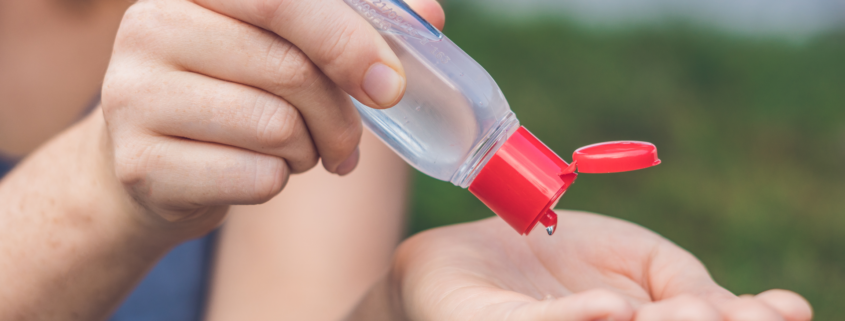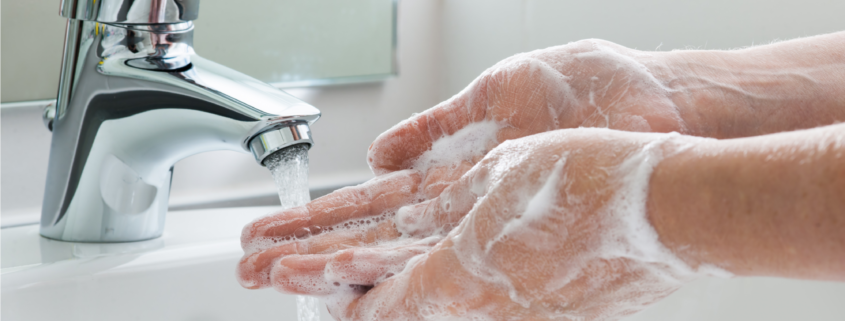Are Your Hands Safely Clean?
It happens throughout the day in all sorts of settings. Hand sanitizer is squirted and spread on the hands, creating a cooling sensation and the feeling of clean.
You have no doubt found this product convenient when you did not have running water available, but have you ever wondered what long-term effect it would have on your body? Given that the majority of chemicals used in the vast number of personal care products have not been tested for safety in humans, it would benefit you to explore what you are using and its potential side-effects.
Hand sanitizers can be made with alcohol (usually ethyl alcohol) or an antibiotic compound called triclosan, which can also be found in antibacterial soaps and even toothpaste. There are a wide variety of potential hazards involved in these ingredients:
Toxic Chemicals – personal care products often have ingredients such as synthetic “fragrance” which is made of phthalates, a hormone disrupter that interferes with the proper function of your hormones, and parabens, which have been demonstrated to age your skin and are linked to breast cancer.
Weaker Immune System – researchers have found that triclosan may negatively affect the human immune system, can make people more susceptible to allergies and more vulnerable to the BPA found in plastics.
Alcohol Poisoning – while using the alcohol-based santizers avoids exposure to chemicals, remember that what you put on your skin is absorbed, and repeated use of the product exposes you (and your children’s smaller bodies) to alcohol.
Hormone Disruption – animal studies have shown that triclosan can change the way hormones work in the body, and mice exposed to just one dose of triclosan experienced a 25% reduction in heart function.
Antibiotic Resistance – researchers found that health care employees who were most likely to use hand sanitizers over soap and water for routine hand washing were nearly 6 times more at risk for illness.
Are there better options? Thankfully, yes.
Remember good ol’ soap and water? That’s a good place to start. While you may think of soap as the star in this mix, it merely removes debris that may harbor bacteria. It is actually the friction of the washing motion that removes the microbes. In fact, a 2007 study found that routine handwashing with regular soap and water is more effective than the use of antibacterial soap.
So skip the antibacterial products and reach for castile soap or other varieties with simple ingredients. Scrub your hands for at least 20 seconds and then rinse well under running water.
If you are frequently in settings where running water and soap are not available, consider making your own sanitizer using the recipe I have provided or one that is similar. These ingredients don’t put your hormones at risk, but will still control the bacteria on your hands and the essential oils provide natural scents.
With the start of the school year, your children will once again be exposed to more “bugs” and it is important to teach them how to protect themselves. Providing them with their own “‘safe” sanitizer will protect them from the “bugs” now and the effect of questionable ingredients in the future.
What first step will you take to keep your family’s hands clean?










